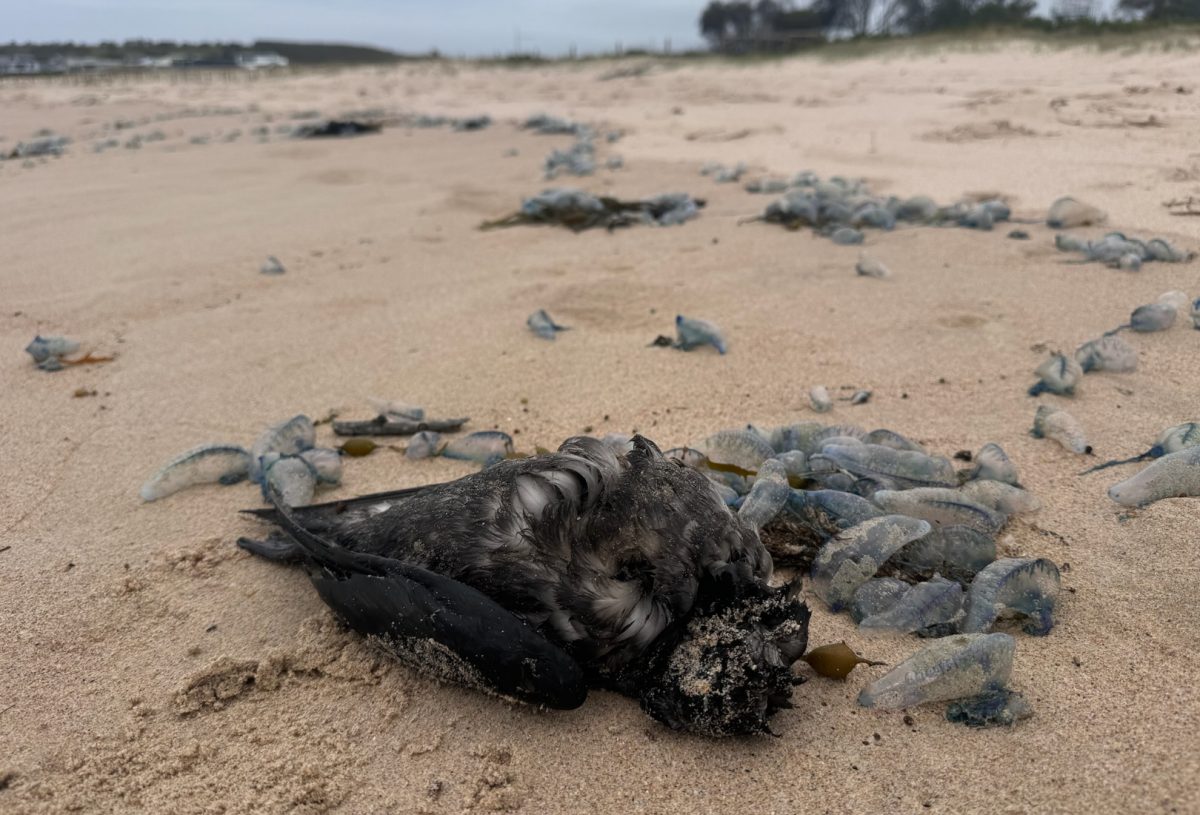
A short-tailed shearwater on a Shellharbour beach. Photo: Julian O’Brien.
You might see more deceased short-tailed shearwaters, also known as muttonbirds, washing up on Illawarra and South Coast beaches this season, as authorities confirm sustained onshore winds are amplifying the usual, naturally occurring deaths.
Already reports have included sightings of the deceased birds in the Illawarra and South Coast areas as higher numbers than usual are pushed onto shores.
While it’s common for the birds to experience exhaustion on their annual migration from places like Siberia, Japan and South America to their breeding sites along Australia’s East Coast from October to November, this year concerns are heightened as authorities monitor for bird flu.
A NSW Department of Climate Change, Energy, the Environment and Water spokesperson said during the migration, the birds endured storms, gales and food shortages.
“These exhausting journeys often mean many shearwaters die, sometimes washing up on beaches in large numbers,” the spokesperson said.
“While confronting, this unfortunate event is a natural occurrence.
“The number of birds stranding is expected to decline later in November, as the migration ends.”
The spokesperson said the department had reported recent incidents of bird deaths to the NSW Department of Primary Industries and Regional Development (DPIRD).
“Separately, DPIRD is testing a subset of shearwaters found along NSW beaches for avian influenza, in addition to surveillance underway through the National Avian Influenza Wild Bird (NAIWB) Surveillance Program,” they said.
“DPIRD advises that no notifiable diseases, including highly pathogenic avian influenza (HPAI) strains, have been detected in birds found on NSW beaches to date.”
Australia was yet to record any cases of the H5N1 strain of high pathogenicity avian influenza.
“Shearwaters have a lower risk of contracting the virus than many other birds because they spend almost all their lives on the wing or at sea and return to land only to breed,” the spokesperson said.
“Internationally, the disease is severely impacting wild and captive bird populations, so it’s important that we stay vigilant.”
If you find more than five sick or dead wild birds, the message is to “Avoid, Record, Report”.
Avoid contact, keep pets away including preventing them from mouthing or scavenging birds, record what you see and report to the Emergency Animal Disease Hotline on 1800 675 888.










